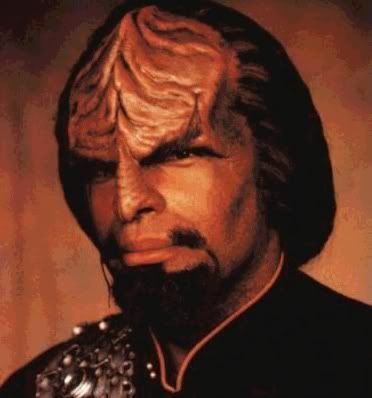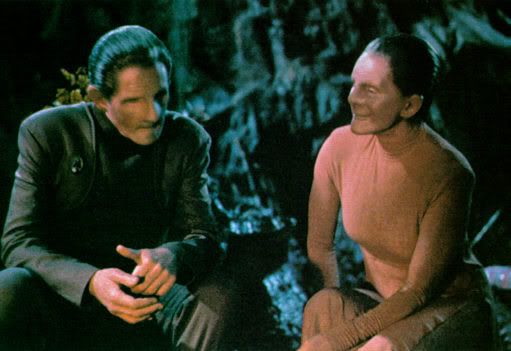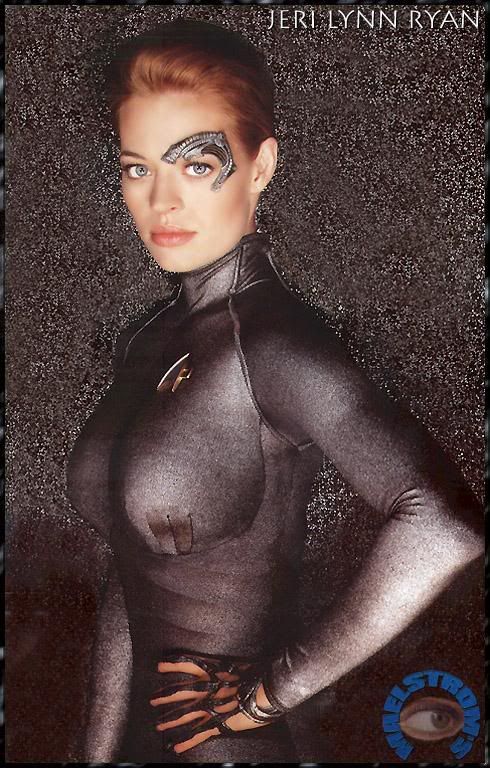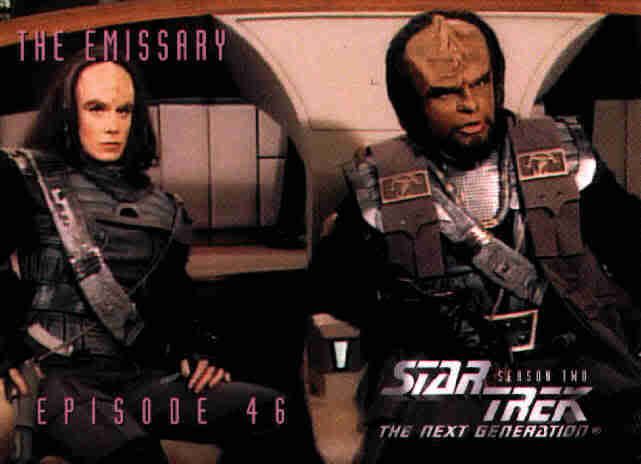
Almost half-way through NAM, seems as apt a time as any to bring up one of the more interesting poster children of the TRA experience: Worf, from Star Trek: The Next Generation.
For those not up to date on their Star Trek mythology, the Klingons were once the main enemies of the Federation (a futuristic stand-in for the United States and United Nations)
Even though they were clearly a space-faring race with access to highly advanced technology. Hmmm. That sounds familiar to a lot of TRAs.
Sergey Rozhenko was a human engineer nearing retirement aboard the U.S.S. Intrepid, and during the Khitomer Massacre, was one of the first response team members who eventually took in Worf.
Worf then grew up in their household and eventually had a long and distinguished career serving on the USS Enterprise and many other adventures on the Deep Space Nine outpost.
***
But what we're interested in, for this post today, is the accuracy and depiction of Worf as a TRA.
It's apples to organges, but historically, the depiction of the TRA experience, whether it's in a production such as the Walleye Kid or Better Luck Tomorrow almost invariably rings false among adult TRAs.
At the risk of generalization, more often than not, we see our experience and perspective used merely as a plot device and the "character's" actions so inconsistent with how we might really react and respond to the world.
From an adoptee perpsective, there's rarely a shortage of individuals in the media who we're told to view as peers: Luke Skywalker, Oedipus, Batman, Superman, the Peach Boy and so on.
I'm also intrigued by the character of Odo in Deep Space Nine, and we may get around to talking about him in another post.


But back to Worf.
I found his depiction to be surprisingly among the most apt to date of the true TRA experience.
Because more often than not, he faced many of the challenges of living the bicultural experience and exhibited many of the classic coping strategies we employ throughout our lives as we struggle for reintegration, reconciliation and recognition of ourselves and our identities.
In the initial seasons, when we first meet Worf, he is a young Klingon raised by humans who has struggled to assert his identity as a Klingon, even as he tries to operate in an organization populated by xenophobes and racists who spent most of their careers trying to kill his people, and who still watch his assignment as security officer aboard the flagship of the Federation with great suspicion.
Or at least, as much as Federation anthropological records and unclassified Klingon records will allow. But that's another wrinkle.
Worf employs a classic TRA response strategy- he becomes extremely militant and 'Klingon-Pride' for lack of a better phrase, often to the point of being REALLY hard to talk with, and constantly peppering his conversations with bits about Klingon culture and things he's proud of it for.
And that alone might be enough to earn Worf a spot in our books as a well-written TRA, but what does it for me, is the accuracy with which Star Trek: The Next Generation also depicted Worf's journey midway through.
They had Worf gain a greater knowledge about the 'compromises,' the 'realpolitik' and the difference between 'ideal' cultures and their actual implementation.
When Worf finds corruption among the Klingon high command he is disappointed but also cannot turn back.
Worf eventually has a son with a bi-racial, half-klingon, half-human woman, and this too resonates with many of the TRAs and who we have relationships with- often those on the periphery of our root culture.

Often, throughout the series, though this was often just a plot device, Worf had many elements of his past challenged- everything he knew about himself might have been a lie or inaccurate, or he had family enemies he never even knew about but was obliged to confront. But still, this rings true to much of many TRA experiences.
So, with that being said, take a look at this classic 'mix' of 'Worf-isms' and see what you think.
3 comments:
It is embarrassing to show my ignorance this way, but could you please define the acronym "TRA"? I am unfamiliar with this term and there was not explanation of it in this essay.
It is embarrassing to put my ignorance on display this, but could you please explain the acronym "TRA"? I am unfamiliar with it and there was no explanation of it in your essay.
The key acronyms are: TRA: Transracial/Transcultural Adoptee and also NAM: National Adoption Month (November). Hope that helps! :)
Post a Comment